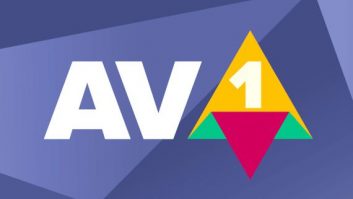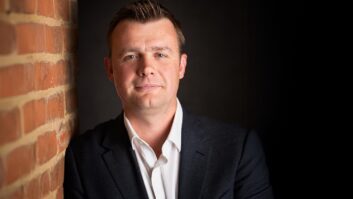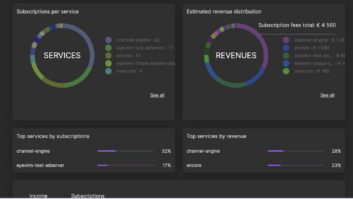Industry veterans Neil Harris and Ron Eagle have teamed up under the banner of Media Channel to offer distaster recovery, continuous computer back-up, and offsite processing services to London’s post production and CGI houses, writes George Jarrett. And from what Eagle describes as “an anonymous building surrounded by razor wire” they also plan to establish a digital content delivery service for D-Cinema and broadcast companies.
The duo considered launching a rendering farm project last year, but the property and rack costs were prohibitive. “Nonetheless, we knew that almost all the post and visual effects houses in Soho are outgrowing their premises,” said Eagle. “They have power problems – hot lines into their buildings – and yet they are all sitting on second, third and fourth floors pumping out yet more heat. There are absolute tons of computers sitting in 1930’s buildings.”
In the City area the asking price was STG8,000 per rack, and with some film companies talking about buying an eight-rack service, Harris and Eagle couldn’t make the figures work.
“We walked many pavements and knocked on the doors of data centres, builders, and the owners of empty buildings, hoping to negotiate on rack rates,” said Eagle. “We found our building and computer room during the acquisition of a data centre and were able to agree rack costs of STG3,500. We got in at the right time.”
The key issue in this buisness sector is power density, with most service companies insisting that for each two racks you buy one is for your server kit and one is kept empty so you don’t overload the air conditioning.
“We are now proud estate agents,” said Harris. “If you go air cooled, it’s a much better deal. People worry about terrorism, perhaps a dirty bomb, and about fire, so we have had a lot of requests regarding back-up and business continuity. A short hop on the tube, and you can continue business just like you left it.”
Media Channel would not be quite so viable without its close relationship with Sohonet. “It provides cost effective and resilient fibre connections that enables it to do Gigabit connections easily,” said Harris. “No fibre means no data centre, so it is the crucial umbilical chord.”
That said, the building is just a stone’s throw away from a telco network Telehouse and it has fibre connectivity to main network centres in situ. Eagle and Harris have five operational staff who keep things running 24/7 365, but what do they offer exactly?
“The basic deal is the space with battery-backed power supply and air conditioning. You bring or buy the servers yourself,” said Harris. “We are 8-10 KW able now, and can potentially go to 15 KW for which we would allocate larger space areas.
“Everything can continue without interruption in any conceivable event. It is like a giant UPS – if the mains fail, batteries take over and last long enough (15 minutes) to enable the back-up diesel-powered generators to come into play. We have large communication links into the building and can get any speed from a minimum of 10 Mbps per second to multiple Gigabit links and all the way up to a full native optical link,” he added. “Also, the communications can be diverse, offering two paths into the data centre.”
Asked when the computer room and its racks might be full to capacity, Eagle said two years or earlier. With Harris sitting on the working group that is designing the software for delivering HD content to the BBC, it is a natural progression for Media Channel to move into digital programme delivery, and the D-Cinema market.
“Timing wise, we are in a classical contingency budgetting period now,” said Eagle. “If all goes well we could launch a service in another city like LA, but it would have to be a different business model. We are in talks already for delivering D-Cinema content.”







